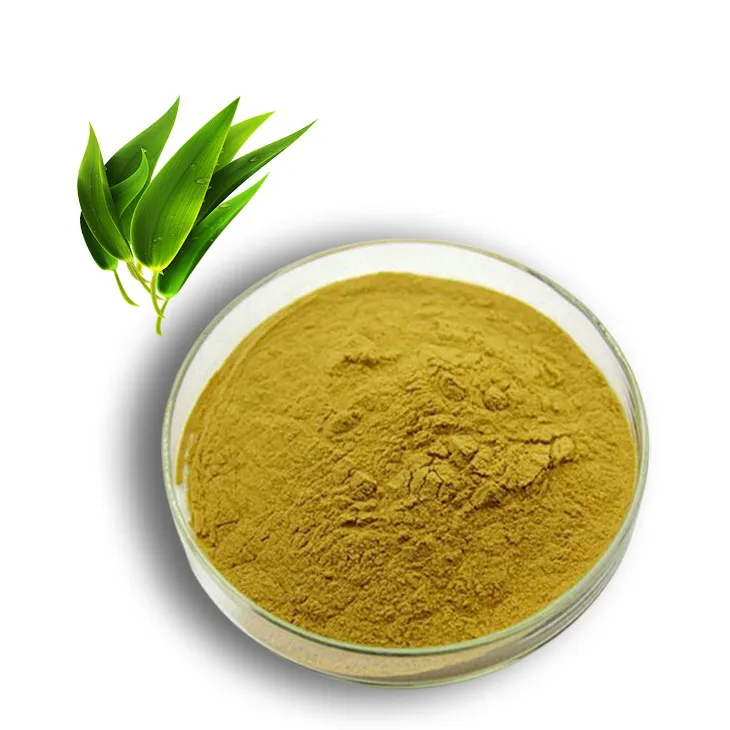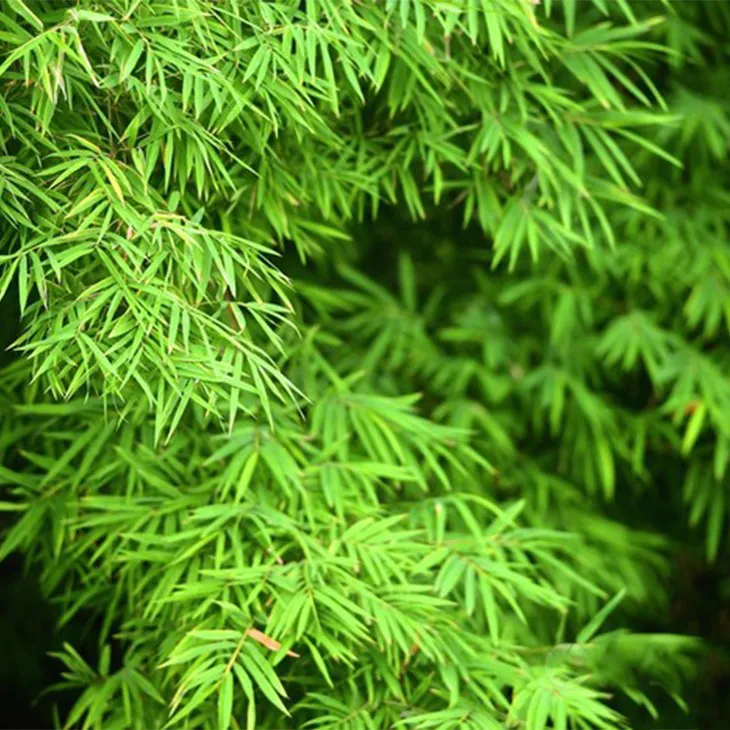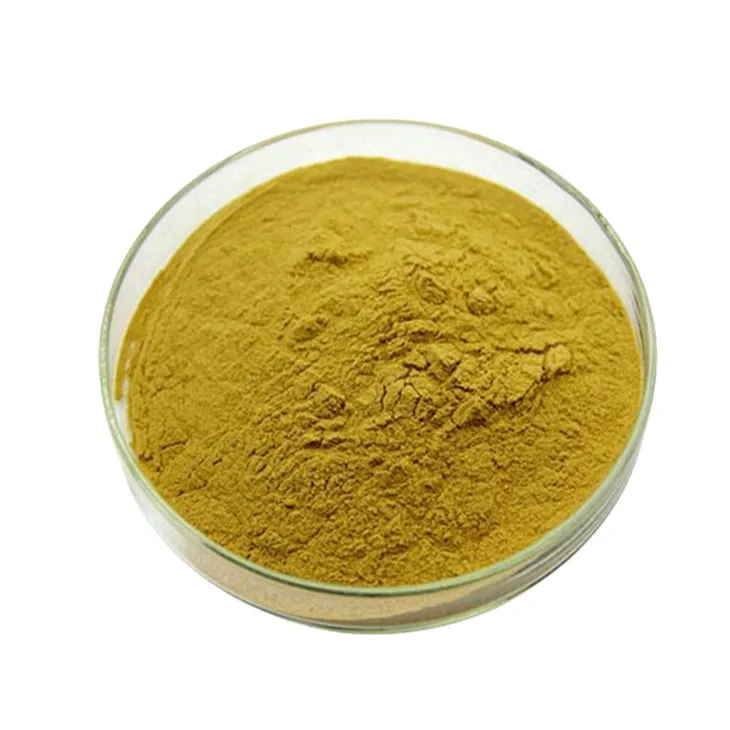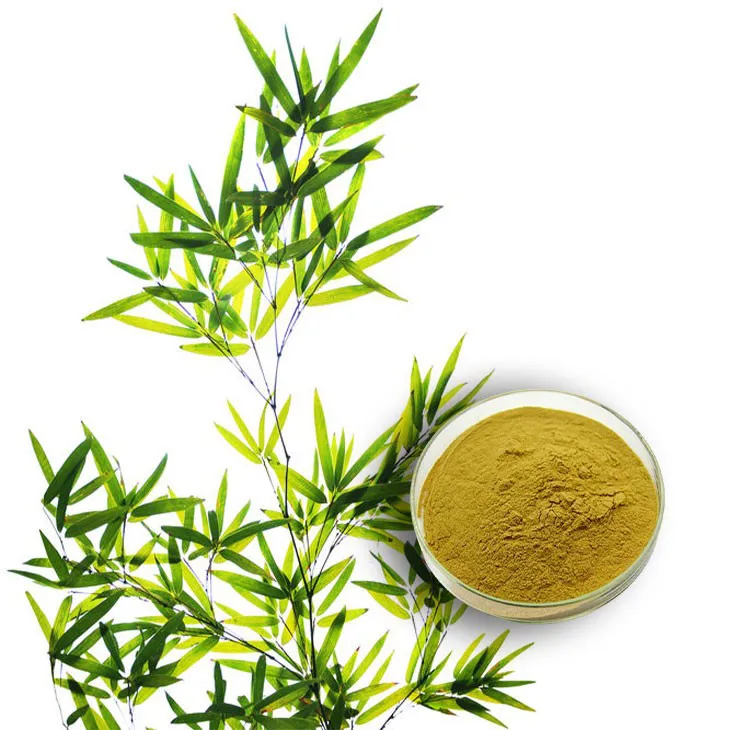- 0086-571-85302990
- sales@greenskybio.com
Bamboo Leaf Extract: A Journey Through Time - Traditional Healing to Modern Health Solutions
2024-07-04

1. Introduction
Bamboo, an ever - present and versatile plant in many cultures around the world, has been a part of human life for centuries. Among its many uses, the Bamboo Leaf extract has emerged as a substance of great interest. This extract has a long and storied history, starting from its use in traditional healing methods and now making waves in modern health solutions. It is a testament to the fact that nature often holds the key to many of our health - related problems, and sometimes, the answers lie in the plants that have been around us for ages.

2. Bamboo Leaf extract in Traditional Medicine
2.1. Ancient Chinese Medicine
In Ancient Chinese Medicine, bamboo leaves were highly regarded. They were often used in the treatment of various ailments. For example, it was believed that Bamboo Leaf extract could help in reducing fever. This was due to its perceived cooling properties. The traditional healers in China would often prepare concoctions using bamboo leaves for patients with high body temperatures. It was also used to soothe inflammation, especially in cases related to the respiratory system. The idea was that the extract could help in clearing heat and toxins from the body, thus alleviating symptoms of inflammation such as coughing, sore throat, and shortness of breath.
2.2. Ayurvedic Medicine in India
In the realm of Ayurvedic Medicine in India, bamboo leaf extract also had its place. Ayurveda, which is one of the world's oldest holistic healing systems, recognized the potential of bamboo leaves. Here, it was used for its diuretic properties. It was believed that consuming bamboo leaf extract could help in flushing out toxins from the body through increased urination. Additionally, it was also used in some remedies for digestive disorders. The extract was thought to stimulate the digestive fire, known as "agni" in Ayurveda, and thus improve digestion. It was also used in topical applications for skin problems. The anti - inflammatory nature of the extract was harnessed to soothe skin irritations and rashes.

3. Traditional Preparation Methods
The traditional preparation of bamboo leaf extract varied across different cultures. In China, one common method was to boil the fresh bamboo leaves in water. This decoction would then be strained and consumed as a tea - like beverage. Sometimes, other herbs would be added to the bamboo leaf decoction to enhance its medicinal properties. For instance, ginger might be added to further aid in reducing inflammation and improving digestion. In India, for Ayurvedic preparations, the bamboo leaves were often dried first. Then, they would be ground into a fine powder. This powder could be used to make a paste when mixed with water or other liquids for topical applications. For internal consumption, the powder could be made into a herbal infusion by steeping it in hot water for a certain period of time.

4. Modern Scientific Research on Bamboo Leaf Extract
4.1. Chemical Composition
Modern scientific research has delved deep into the chemical composition of bamboo leaf extract. It has been found to contain a variety of bioactive compounds. One of the important components is flavonoids. Flavonoids are known for their antioxidant properties. These antioxidants play a crucial role in protecting the body's cells from damage caused by free radicals. Free radicals are unstable molecules that can cause oxidative stress in the body, which is linked to various diseases such as cancer, heart disease, and neurodegenerative disorders. Another significant component in bamboo leaf extract is phenolic acids. These phenolic acids also contribute to the antioxidant activity of the extract and have been shown to have anti - inflammatory effects as well.
4.2. Health - Promoting Properties
- Antioxidant Activity: As mentioned earlier, the flavonoids and phenolic acids in bamboo leaf extract give it strong antioxidant activity. This means that it can scavenge free radicals in the body, reducing the risk of oxidative - related diseases. In vitro and in vivo studies have demonstrated the extract's ability to neutralize free radicals effectively.
- Anti - Inflammatory Effects: Beyond its traditional use in treating inflammation, modern research has provided scientific evidence for the anti - inflammatory properties of bamboo leaf extract. The bioactive compounds in the extract can modulate the body's inflammatory response. This makes it potentially useful in treating chronic inflammatory conditions such as arthritis and inflammatory bowel disease.
- Cardiovascular Health: There is emerging evidence that bamboo leaf extract may be beneficial for cardiovascular health. It may help in reducing blood pressure. The mechanism behind this may be related to its ability to relax blood vessels. Additionally, it may also have a role in reducing cholesterol levels. By inhibiting the absorption of cholesterol in the intestine or promoting its excretion, the extract could potentially lower the risk of heart disease.
- Antidiabetic Potential: Some studies have suggested that bamboo leaf extract may have antidiabetic properties. It may help in regulating blood sugar levels. This could be due to its effect on insulin sensitivity. By improving the body's response to insulin, the extract may assist in maintaining normal blood glucose levels, which is crucial for diabetic patients.

5. Modern Applications of Bamboo Leaf Extract
5.1. Dietary Supplements
One of the most common modern applications of bamboo leaf extract is in dietary supplements. With the increasing awareness of the importance of natural health products, many supplement manufacturers are incorporating bamboo leaf extract into their products. These supplements are often marketed as antioxidant boosters, anti - inflammatory aids, or general well - being enhancers. They are available in various forms such as capsules, tablets, and powders. Consumers are attracted to these products as they are perceived as a natural alternative to synthetic medications for maintaining health.
5.2. Cosmetics
Bamboo leaf extract has also found its way into the cosmetics industry. In skincare products, its antioxidant and anti - inflammatory properties are highly valued. It can be used in creams, lotions, and serums to protect the skin from environmental damage, such as pollution and UV radiation. It may also help in reducing signs of aging, such as wrinkles and fine lines. In haircare products, bamboo leaf extract can be added to shampoos and conditioners. It may help in strengthening the hair follicles, reducing hair fall, and promoting healthy hair growth.
6. Safety and Precautions
While bamboo leaf extract has shown great potential in various health and beauty applications, it is important to consider safety and precautions. Although generally considered safe for consumption in moderate amounts, some people may experience allergic reactions. It is advisable for individuals with a history of plant - based allergies to exercise caution when using products containing bamboo leaf extract. Also, pregnant and breastfeeding women should consult their healthcare providers before using any products with bamboo leaf extract. As with any supplement or natural product, it is crucial to ensure that it is sourced from a reliable and reputable manufacturer to avoid potential contaminants.
7. Conclusion
The journey of bamboo leaf extract from traditional healing to modern health solutions is truly remarkable. It serves as an excellent example of how traditional knowledge can be combined with modern scientific research to unlock the potential of natural substances. The extract's long - standing use in traditional medicine systems across different cultures provides a solid foundation for its exploration in modern health applications. With ongoing research, it is likely that more health - promoting properties of bamboo leaf extract will be discovered, further bridging the gap between old - world wisdom and new - age health solutions. As consumers continue to seek natural and effective ways to enhance their well - being, bamboo leaf extract is poised to play an increasingly important role in the global health and beauty market.
FAQ:
What are the traditional uses of Bamboo Leaf Extract in medicine?
In traditional medicine systems, Bamboo Leaf Extract was prized for treating various ailments. It was often used for its believed anti - inflammatory properties. For example, it was used to relieve minor pains and reduce swelling in some traditional practices. It was also thought to have a role in improving digestion, potentially helping with issues such as indigestion and stomach discomfort.
How has modern science contributed to the understanding of Bamboo Leaf Extract?
Modern science has used advanced research techniques to study Bamboo Leaf Extract. Scientists have identified various bioactive compounds in it. For instance, they have found antioxidants that can help combat oxidative stress in the body. Research has also shown potential benefits in areas like cardiovascular health, as some components of the extract may contribute to better heart function. Additionally, studies on its anti - microbial properties have provided new insights into its possible uses in preventing certain infections.
What makes Bamboo Leaf Extract a bridge between traditional and modern health solutions?
The fact that it has a long history of use in traditional medicine gives it a basis in old - world wisdom. Then, modern scientific research validates and further explores its potential health benefits. For example, traditional use for general well - being is now being supported by scientific evidence on its role in promoting cellular health. This combination of historical use and modern scientific validation makes it a bridge between the two types of health solutions.
Are there any side effects associated with Bamboo Leaf Extract?
While Bamboo Leaf Extract is generally considered safe, some people may experience mild side effects. In rare cases, it could cause allergic reactions, especially in those with sensitivities to plants in the bamboo family. Also, if taken in excessive amounts, it may lead to digestive issues such as nausea or diarrhea. However, more research is needed to fully understand all potential side effects.
How can Bamboo Leaf Extract be incorporated into modern health regimens?
It can be incorporated in various ways. Some health products, such as dietary supplements, already contain Bamboo Leaf Extract. These can be taken as part of a daily supplement routine to potentially gain its health benefits. Additionally, it may be used in some natural or herbal remedies for specific health concerns. However, it is important to consult a healthcare professional before starting any new supplement, especially if one has pre - existing health conditions or is taking other medications.
Related literature
- The Traditional and Modern Applications of Bamboo Leaf Extract"
- "Bamboo Leaf Extract: From Ancient Remedies to Contemporary Health Research"
- "Unraveling the Mysteries of Bamboo Leaf Extract in Health Sciences"
- ▶ Hesperidin
- ▶ citrus bioflavonoids
- ▶ plant extract
- ▶ lycopene
- ▶ Diosmin
- ▶ Grape seed extract
- ▶ Sea buckthorn Juice Powder
- ▶ Beetroot powder
- ▶ Hops Extract
- ▶ Artichoke Extract
- ▶ Reishi mushroom extract
- ▶ Astaxanthin
- ▶ Green Tea Extract
- ▶ Curcumin Extract
- ▶ Horse Chestnut Extract
- ▶ Other Problems
- ▶ Boswellia Serrata Extract
- ▶ Resveratrol Extract
- ▶ Marigold Extract
- ▶ Grape Leaf Extract
- ▶ blog3
- ▶ Aminolevulinic acid
- ▶ Cranberry Extract
- ▶ Red Yeast Rice
- ▶ Red Wine Extract
-
Green Tea Extract
2024-07-04
-
Mango flavored powder
2024-07-04
-
Tongkat Ali Extract Powder
2024-07-04
-
Pomegranate Extract
2024-07-04
-
Beetroot juice Powder
2024-07-04
-
Lavender Extract
2024-07-04
-
Marigold Extract
2024-07-04
-
Chaste Berry Extract
2024-07-04
-
Black Rice Extract
2024-07-04
-
Tormentil Extract
2024-07-04





















